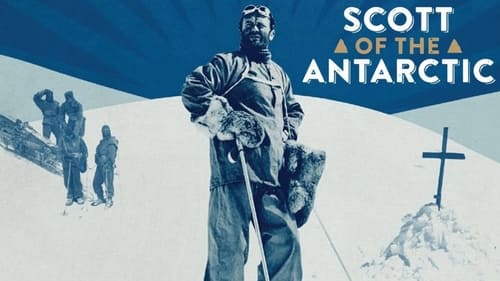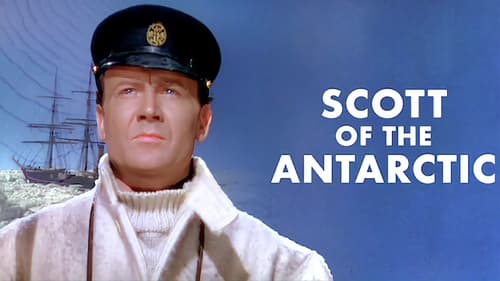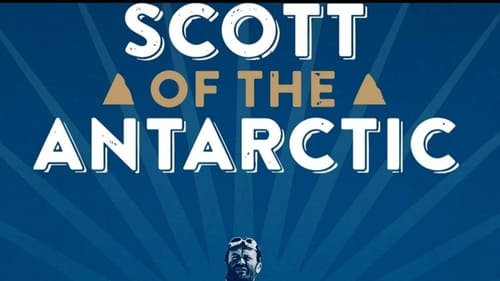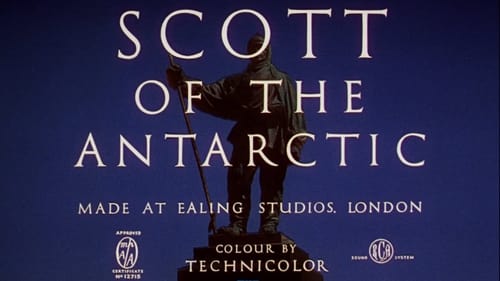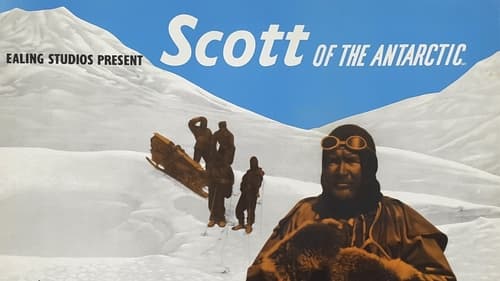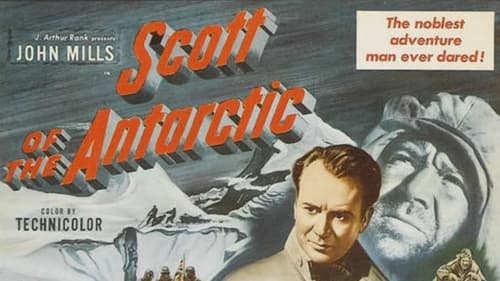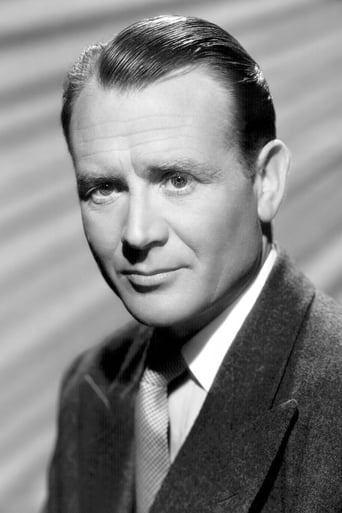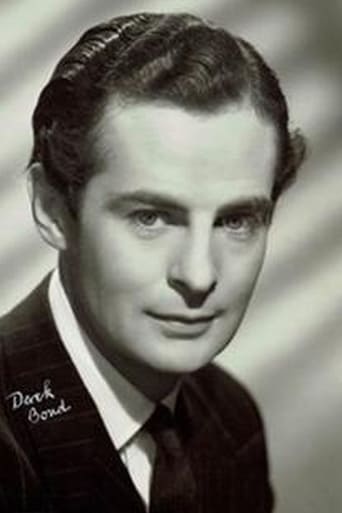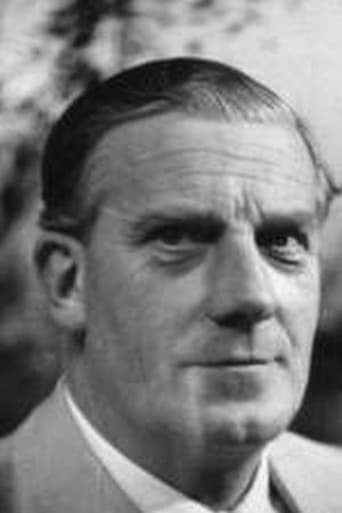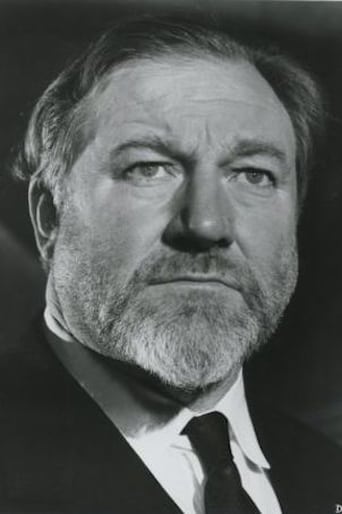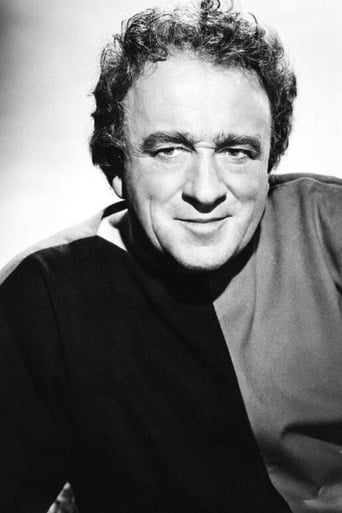Dynamixor
The performances transcend the film's tropes, grounding it in characters that feel more complete than this subgenre often produces.
ChicDragon
It's a mild crowd pleaser for people who are exhausted by blockbusters.
Janae Milner
Easily the biggest piece of Right wing non sense propaganda I ever saw.
Cassandra
Story: It's very simple but honestly that is fine.
1bilbo
This is a really good film.The story is pretty accurate and the characters are played splendidly by people who could actually act.The scenery is breathtaking – no CGI here and it shows! Real backdrops to go with the real actors. The music by Vaughn Williams ads to the sense of horror as these brave explorers venture to the "Worst place on earth" only to find the bitter disappointment when they get there.One is left with a real sense of "Was it worth it" as the team are picked off one-by-one by the dreadful conditions; yet still carry on with determination.Watch it in a warm room!
Robert J. Maxwell
I saw this years ago and only recently caught the final bleak half hour, but it was just as impressive the second time around. Half a dozen men intrigue and importune to get together the first expedition to find the South Pole. It's an excellent cast and the photography is impeccable. So are the make up and the visual effect. That makes it all the more sad that they discover the South Pole but don't make it back.It's a heartbreaking film but a thought-provoking story as well. What is it that drives men to undertake such risky tasks when they have no practical purpose? Facile answers like "heroism" or "pride" won't do.Sebastian Junger, who has a degree in anthropology, has explored the topic and described the kind of men who are drawn toward dangerous work, such as "tree toppers" in the lumber industry. My anthropology professor, John M. Roberts, developed the hypothesis that an adrenalin rush was involved, that certain people can become internal adrenalin addicts. They come to NEED that rush.But any explanation can be only partial, however plausible it might sound. If Roberts were still alive, I'd ask him to look into blood testosterone levels, or I'd do it for him.There are social factors at work as well. Would Scott and his colleagues have taken on a suicidal journey if no one could ever have found out about it? If they didn't represent England, but only themselves? Would America have developed its space facilities and put the first men on the moon if no one would ever know about it? In any case, some second-unit footage was shot in Antarctica but most of the location shooting was done in the Alps and in Norway. It's not as overwhelming as the desert in "Lawrence of Arabia," but given the technology and commercial arrangements of the time, it's very convincing, and so are the studio scenes. Antarctica is a majestic continent. There's really nothing much there. And there are times when I wish we'd leave it alone in its pristine form, free of humans and their artifacts and their garbage. Sometimes I feel the same way about the Titanic, a vast rusting graveyard. Hasn't it been through enough without being exploited for a few more pennies? Sorry, I almost fell off that editorial soap box again, but that doesn't affect the many virtues of this film. Despite the climactic melancholy, you won't regret watching it.
Maddyclassicfilms
Scott Of The Antarctic is directed by Charles Frend and is a superb account of the ill fated Polar trek in 1912 which claimed the lives of four men,most notably the legendary Captain Scott. The film stars John Mills, James Robertson Justice, Derek Bond, Diana Churchill and Kenneth More.Beginning in 1908 Captain R.F Scott(John Mills)tries to put together a polar team and raise funds for a scientific trip to the Antarctic.He is accompanied by his close friend Dr.E.A Wilson(Harold Warrender),Captain L.E.G Oates(Derek Bond)who would gain fame by being the man who stepped out of the tent to try and give his companions a bigger chance at survival,Lt.H.R Bowers(Reginald Beckwith),Taff Evans(James Robertson Justice)and a young Kenneth More as Lt.Teddy Evans.There's also fine support from Diana Churchill as Scott's faithful encouraging wife Kathleen and Anne Firth as Wilson's loving wife Oriana.With breathtaking photography and use of colour by Jack Cardiff and strong performances this is a moving and fairly accurate account of the expedition we will never forget.It shows the harsh weather they faced,the ill preparation and bad luck which dogged the last leg of the trek.Taking us back to a time where men like this were heroes and the whole world was behind their endeavour,wishing them the best of luck.Based on Scott's diaries and letters as well as accounts from the survivors, this gripping film is as close to being there as you can actually get.The cast are superb,especially John playing the charming,driven and determined leader, who's valour and courage moved many after his diaries were made public.This is one you won't regret seeing and it's without a doubt one of the best films Ealing Studios ever produced.
jc-osms
There have recently been a lot of dramatised and documentary programmes on UK terrestrial and satellite TV on the pioneering polar explorers, erstwhile rivals and colleagues Scott & Shackleton so I was keen to view this British made dramatisation of the former's doomed 1912 expedition to the South Pole. I was not disappointed. It is obviously difficult to maintain cinematic excitement for the viewer of what is basically a long march (a similar problem as in "The Spirit of St Louis" and "The Old Man & the Sea"), but the true to life tragedy here proves compelling in the end. Jack Cardiff's colour photography is splendid and I was surprised to observe so few "process" shots for a film from the 1940s, given the scale of the task here. John Mills is excellent in the key role of Commander Scott but the supports are all excellent, many of them chosen for their physical similarity to their real life counterparts - Mills too bears a more than passing likeness of physiognomy to Scott. In the post - war climate, Britain obviously sought comfort and inspiration from past heroes as the country rebuilt itself in economic austerity and Scott must have been an ideal model for glorification. Regardless of sniping comments from historians about Scott's poor planning, the film quite rightly avoids judgements and asks the viewer to recognise and admire the human heroism of these gallant men. There is surely no more tragic sacrifice in all exploration than Oates' "I'm going outside, I may be gone some time" - exit and the movie captures this moment with the necessary pathos, later repeating the sensitivity as Scott and his last two colleagues expire with the so near and yet so far "11 miles" on their freezing lips. The Vaughan-Williams music is suitably sweeping and elegiac. One wonders why Hollywood ignored the film at the Academy Awards of 1948, certainly the acting, cinematography and music, to name but three, were worthy of recognition. I wonder if anyone would remake it in the modern era as we approach the centenary of the triumph and tragedy of Scott's expedition. Are you listening Peter Jackson...?
